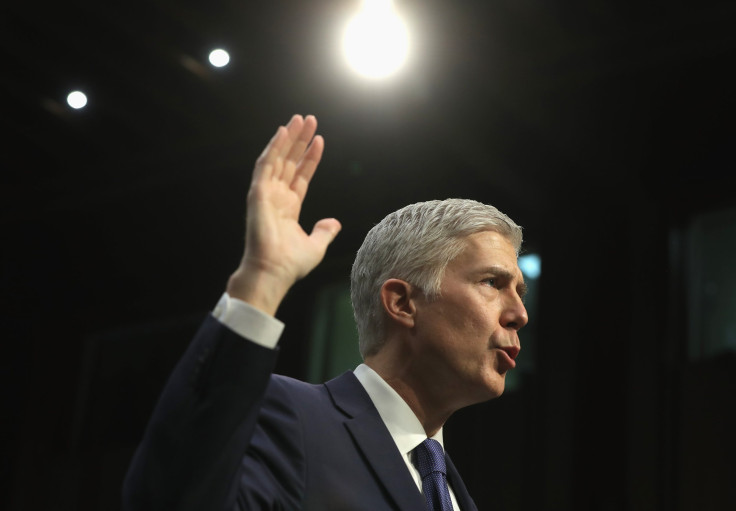How Long Will Gorsuch Be On The Supreme Court? Justices' Terms Vary By Age

The U.S. Senate voted Friday to confirm Neil Gorsuch, President Donald Trump's nominee to the Supreme Court. In doing so, they formally approved Gorsuch's taking over the seat of late Justice Antonin Scalia — and likely influenced years of decisions to come from the nation's highest court.
That's because Supreme Court justices don't have term limits. As laid out in Article III of the Constitution, "judges, both of the supreme and inferior courts, shall hold their offices during good behavior," meaning they can keep their jobs for as long as they want unless they are impeached. That's only happened once, in 1805, according to the court's website.
Read: Who Voted Against Gorsuch? Full List Of Senators Who Opposed Trump’s Supreme Court Nominee
Given that they're appointed for life, the younger the justice, the longer they tend to serve, Pew Research Center reported in February. People who joined the court when they were under 45 stayed on for about 22 years, while new justices older than 60 worked for about 12 years. Averages in between varied accordingly.
Gorsuch is 49, and people of that age served a mean of 19 years on the court.
Then there are the outliers. The person who stayed on the Supreme Court the longest was Justice William O. Douglas, who sat on the bench for 36 years. The person who had the shortest term was Justice John Rutledge, who was on the Supreme Court for just 1 year and 18 days in the 1700s.
Read: Meet Marie Louise, The Supreme Court Nominee's Longtime Partner
In the opening statement Gorsuch read at the beginning of his confirmation hearings, he spoke about having "a life in the law."
"I'll never forget my first day on the job, carrying a pile of briefs up the steps to the bench, I tripped on the hem of my robe. And just about everything went flying. But troublesome as a robe can be, the robe does mean something to me, and not just that I can hide the coffee stains on my shirt," Gorsuch said, according to Fortune. "Putting on a robe reminds us judges that it's time to lose our egos and open our minds. It serves, too, as a reminder of the modest station we judges are meant to occupy in a democracy."
© Copyright IBTimes 2024. All rights reserved.






















